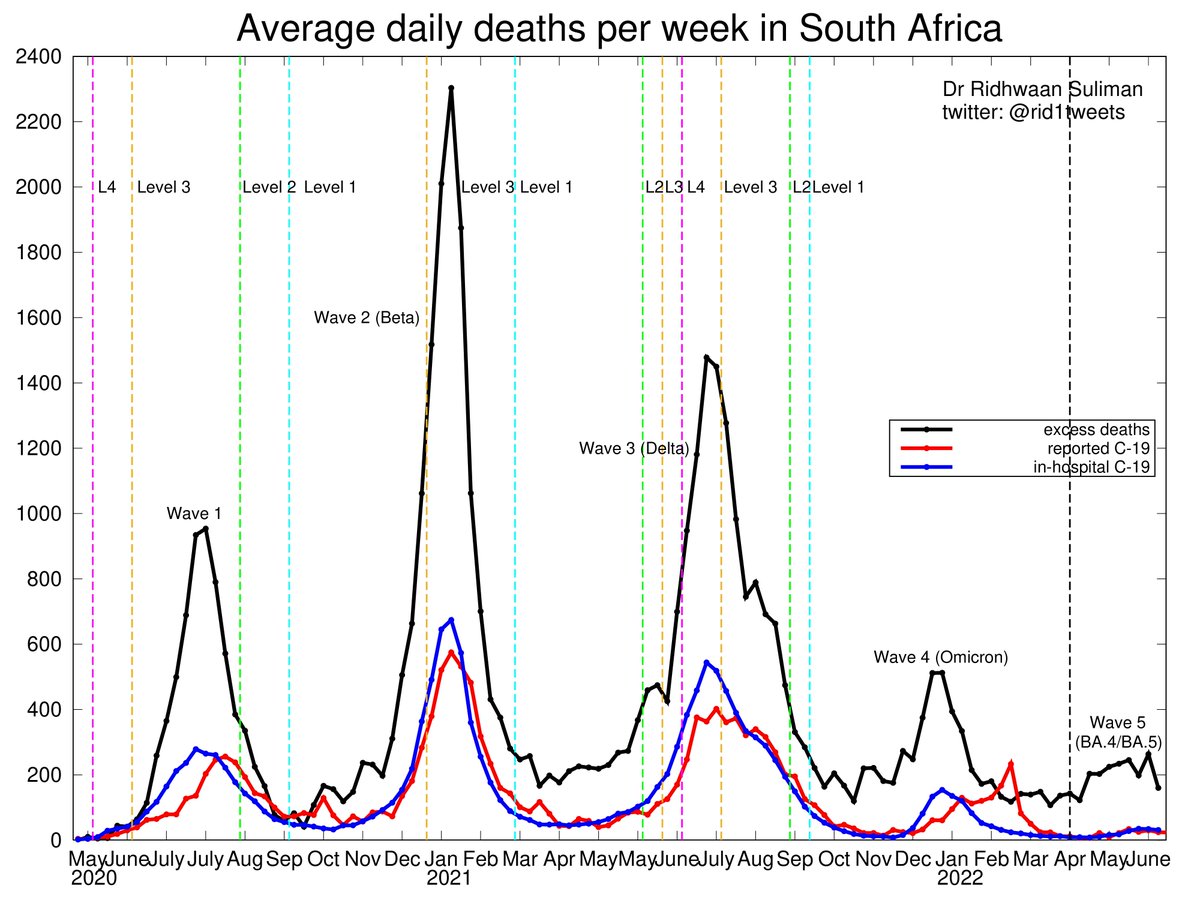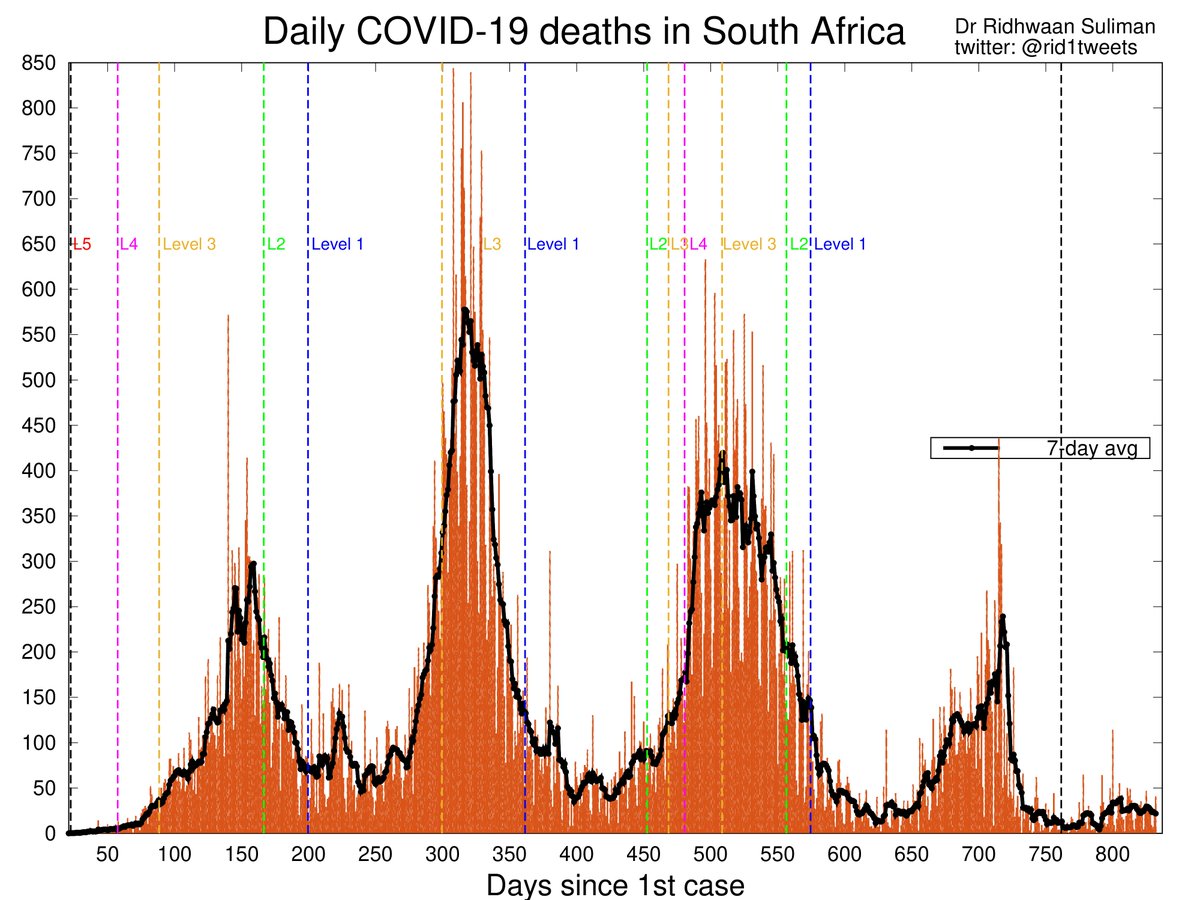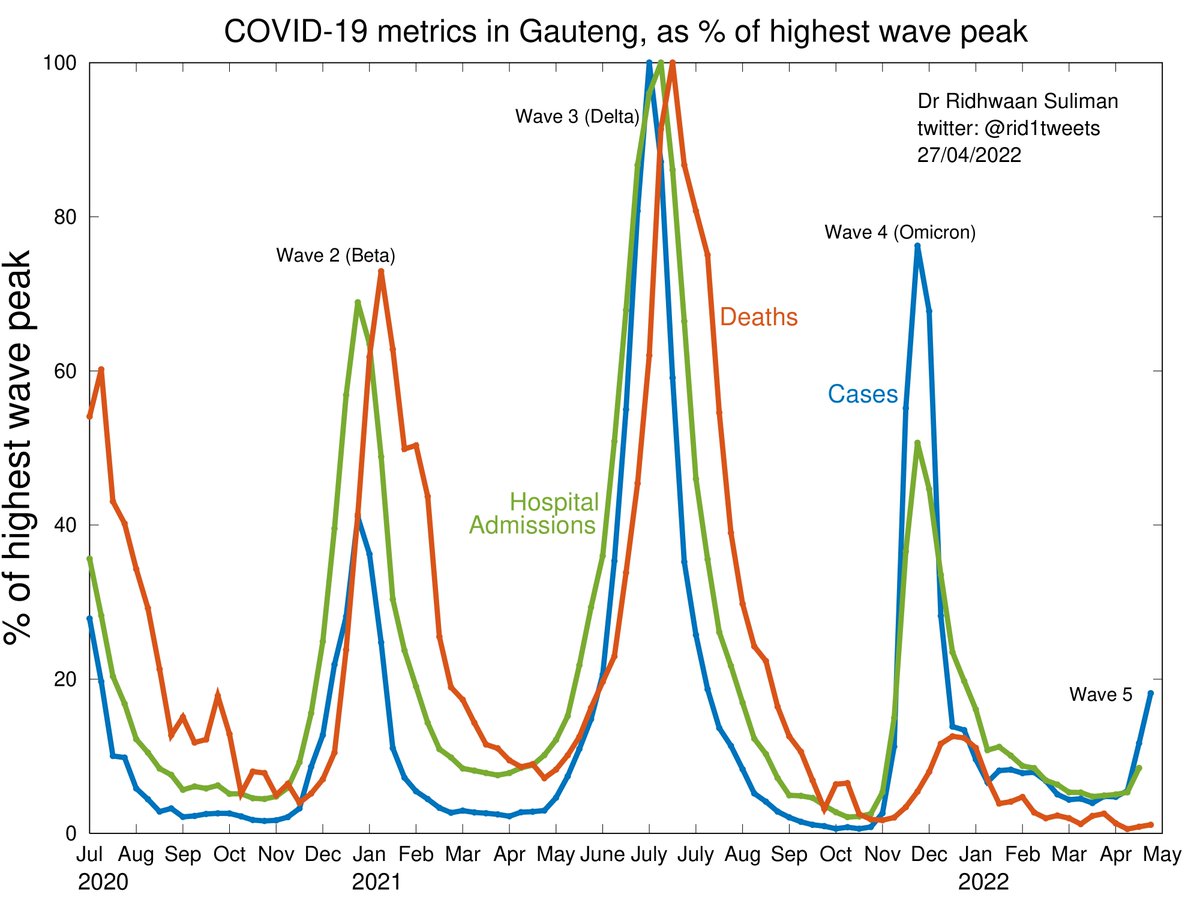[Thread] Fellow Gautengers,
The #3rdWave of #COVID19 in #Gauteng has been devastating😩
There are signs of hope, light at the end of the dark tunnel💡
Cases surpassed an inflection point and heading towards/possibly at a peak🗻
But we must remain vigilant🧐
#Rid1TweetsOnCovid
The #3rdWave of #COVID19 in #Gauteng has been devastating😩
There are signs of hope, light at the end of the dark tunnel💡
Cases surpassed an inflection point and heading towards/possibly at a peak🗻
But we must remain vigilant🧐
#Rid1TweetsOnCovid

Over past 7 days, > 78k #COVID19 cases reported in Gauteng, an avg of 11,266 per day, and up 6% week-on-week 📈
Case incidence rate at 73 new cases per 100k per day - highest infection rate seen by any province at any stage since the start of the pandemic ⚠️
#Rid1TweetsOnCovid
Case incidence rate at 73 new cases per 100k per day - highest infection rate seen by any province at any stage since the start of the pandemic ⚠️
#Rid1TweetsOnCovid

We need to wait for and see a sustained decrease in cases for 7 days to confirm a peak has been reached, i.e. 7-day rolling average showing <= 0% change week-on-week 📉
But rate of increase of cases has certainly slowed passing an inflection point... 🤞
#Rid1TweetsOnCovid
But rate of increase of cases has certainly slowed passing an inflection point... 🤞
#Rid1TweetsOnCovid

Mathematically, an inflection point of a smooth curve is the point where curvature changes from convex (concave upwards) to concave (concave downwards), or vice versa 🤓
At this point, the second derivative of the curve, f'' = 0. 👨🏫
#Rid1TweetsOnCovid
At this point, the second derivative of the curve, f'' = 0. 👨🏫
#Rid1TweetsOnCovid

Practically, what an inflection point means for the epidemiological curve is that cases are no longer accelerating or speeding up 🏎️
Cases are still increasing, but the rate of increase has slowed or decelerating 🚙
#Rid1TweetsOnCovid
Cases are still increasing, but the rate of increase has slowed or decelerating 🚙
#Rid1TweetsOnCovid
Note that an inflection point is different to the peak! At the peak the first derivative or gradient or tangent to a smooth curve, f' = 0. 🤓👨🏫
The peak is the maximum point of the curve and after the peak, new cases start to decrease thereafter 📉
#Rid1TweetsOnCovid
The peak is the maximum point of the curve and after the peak, new cases start to decrease thereafter 📉
#Rid1TweetsOnCovid

Of course, we're not out of the woods either; the curve can turn upwards again at any time if there are any further spikes due to cluster outbreaks and possible superspreader events 👯
Also, the infection rate is still very high and risk remains high so need to remain vigilant 🧐
Also, the infection rate is still very high and risk remains high so need to remain vigilant 🧐
And even once we do peak, importantly we still have to make the downward journey and get through the wave. A peak would only indicate we're halfway there! And we still need every prayer 🗻
How quickly that downward trend lasts is still up to us! 👉
#Rid1TweetsOnCovid
How quickly that downward trend lasts is still up to us! 👉
#Rid1TweetsOnCovid

As an analogy, for those who like mountains/climbed Kilimanjaro: We've now made it Gilman's point, heading towards Uhuru peak. Some of us may be at Uhuru already, watching the ice glaciers 😍
But once we all summit we still have to make the long journey back down to base camp 🗻
But once we all summit we still have to make the long journey back down to base camp 🗻

The increase in test positivity rate in Gauteng confirms increase in infections is real and there may be more undetected / unreported cases 🔍
For week ending 26 June, 1 in every 2.5 tests was returning a positive result 🚩
Bear in mind testing strategy 🧐
#Rid1TweetsOnCovid
For week ending 26 June, 1 in every 2.5 tests was returning a positive result 🚩
Bear in mind testing strategy 🧐
#Rid1TweetsOnCovid

Unfortunately, there still remains strong link between case numbers to hospitalisations and ultimately to deaths🔗
Hospitalisations lag cases, we'll continue to see the healthcare facilities being stretched. A rise can still be expected for at least 2 weeks after cases decline⚠️
Hospitalisations lag cases, we'll continue to see the healthcare facilities being stretched. A rise can still be expected for at least 2 weeks after cases decline⚠️

Hospitalisations in GP are already at their highest levels!
There have been over 5,700 new hospital admissions in GP last week 🚑
There are 8,606 patients currently in hospitals in GP due to #COVID19, with 1,404 in ICU 🤲
#Rid1TweetsOnCovid
There have been over 5,700 new hospital admissions in GP last week 🚑
There are 8,606 patients currently in hospitals in GP due to #COVID19, with 1,404 in ICU 🤲
#Rid1TweetsOnCovid

To any doctors, nurses and HCWs reading this: I know you're all exhausted! Hospitalisations will continue to increase due to lag, stretching health system📈
But what goes up must come down; it will get worse, before it does get better again. Hang in there! 🤝
#Rid1TweetsOnCovid
But what goes up must come down; it will get worse, before it does get better again. Hang in there! 🤝
#Rid1TweetsOnCovid
Lastly, deaths in Gauteng are rising sharply - the true burden of this wave 😢
There have been 1,039 #COVID19 deaths reported in GP in last 7 days, and at all-time highs. How many more, is ultimately still up to God 🤲
But we have to also play our part! 💁♂️
#Rid1TweetsOnCovid
There have been 1,039 #COVID19 deaths reported in GP in last 7 days, and at all-time highs. How many more, is ultimately still up to God 🤲
But we have to also play our part! 💁♂️
#Rid1TweetsOnCovid

There is some hope, but we must remain vigilant and play our part in getting through this difficult period! 🙏
There is still a long journey downwards; let's not make it longer! Don't stop living your lives, but please remain vigilant 🧐
And be kind. Thank you! 🙏
[ENDS]
There is still a long journey downwards; let's not make it longer! Don't stop living your lives, but please remain vigilant 🧐
And be kind. Thank you! 🙏
[ENDS]
• • •
Missing some Tweet in this thread? You can try to
force a refresh



















